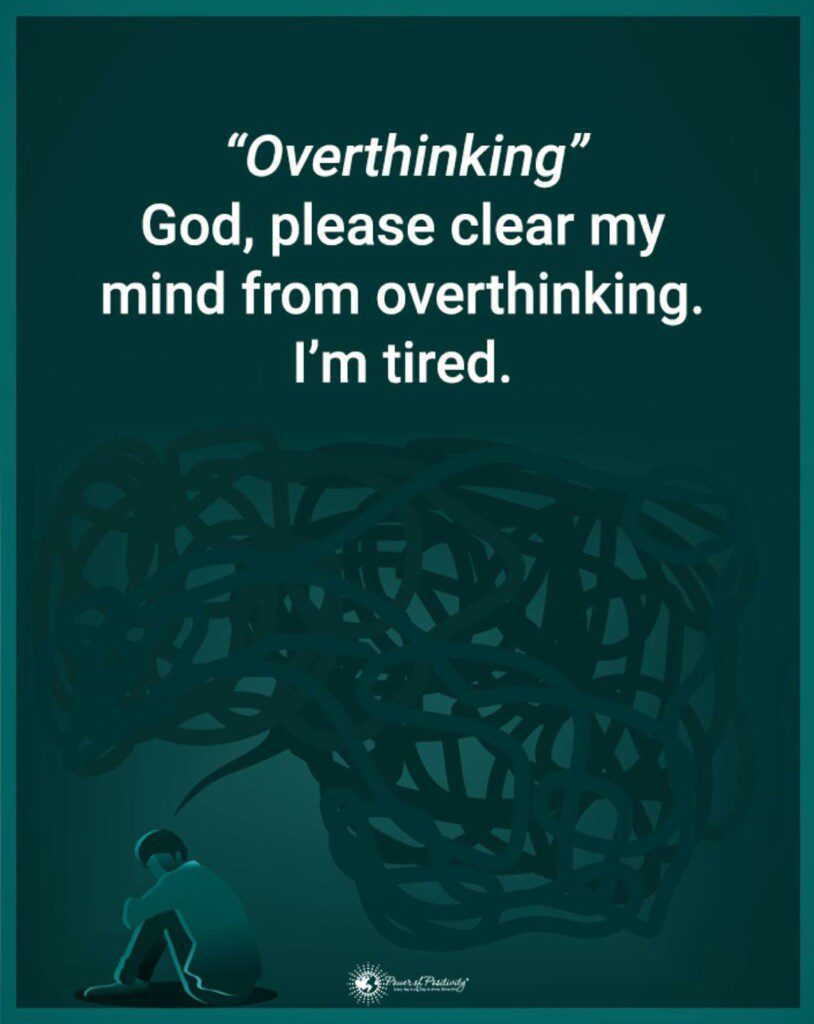Being an overthinker can negatively impact relationships because it can hinder communication and cause added stress. Of course, it’s never easy to slow down your mind and eliminate all the thoughts whirling around your head. However, practicing mindfulness and engaging in plenty of self-care can drastically improve relationships. You may also consider going to therapy to help manage overthink and learn to stay present.
But, having an understanding, supportive partner is crucial to help keep you grounded and ensure you have a harmonious relationship. If your partner gets lost in their mind frequently, try to be patient and listen to their needs. That can make all the difference between a happy and unhappy relationship. Recognizing the signs of overthinking in a partner can enable one to provide practical support and foster healthier communication. Below, we’ll discuss some of the main warning signs of an overthinking partner.
The Impact of a Relationship With an Overthinker
Being in a relationship with an overthinker can be challenging at times, as it can cause mental strain and relationship stress. If a partner is prone to overthinking, you must reassure them often and try to ease their fears. People who ruminate or have intrusive thoughts tend to have trouble letting go of control and taking life as it comes. That’s the most significant reason for overthinking today since our lives have become fast-paced and unpredictable. Therefore, it causes immense stress and worry for many people. So try to see things from your partner’s perspective and be open-minded.
#1: Excessive Worry
Anxiety and constant worry are significant overthinking signs and can become debilitating for some people. Millions of people suffer from anxiety worldwide, especially in industrialized countries. There are many reasons for this, including genetics, lifestyle, environmental factors, childhood trauma, and stress. Our minds haven’t yet evolved for all the stimuli in modern life, but some people are more sensitive to them than others.
Also, financial, political, environmental, career and other stressors can cause anxiety. If your partner worries often, make sure you offer them support and try to ease their concerns by reassuring them. For instance, if they’re worried about finances, sit down with them and formulate a budget to help them feel more in control.
#2: An Overthinker Has Difficulty Making Decisions
Chronic overthinking clouds the mind and makes it harder to decide on anything, from where to eat to what job to take. If you notice your partner struggles with indecision and procrastination, it’s a sign they probably overthink. However, it’s become relatively common in our modern world to struggle with making choices since we have so many options. Some people may spend months or years deciding what path to take, from cars to houses to careers. Tell your partner to start small when it comes to making choices. For example, suggest they narrow down a few houses or cars to buy and then decide on one.
#3: Constantly Replaying Conversations
This can signify insecurity if your partner struggles with rumination and replaying scenarios in their head. People with anxiety, OCD, depression, and other mental health disorders often suffer from low self-esteem. Therefore, they mull over conversations long after they’re over, trying to dissect what they said and how they could’ve improved. They often pressure themselves to act or behave in a way deemed “acceptable” in society. If your partner has an unstable self-image, they may feel uncomfortable in conversations and unsure how to act. To help them break this cycle, reassure them that they’re a perfectly lovable, beautiful person. They deserve to feel good about themselves and stop overthinking, even if it takes practice.
#4: An Overthinker Seeks Reassurance
Another common sign of overthinking includes constant reassurance seeking and relationship insecurity. A person who lacks self-confidence and feels anxious will seek validation from others to feel secure. They may feel overwhelmed and need support from others, something everyone requires in life sometimes. It only becomes a problem if someone can’t decide or stand-alone. You can still guide your partner and offer advice, but encourage them to make decisions independently.
#5: Frequent Fatigue and Exhaustion
Thinking too much causes immense mental fatigue and chronic exhaustion. Someone who can’t shut off their brain will probably need tons of downtime to restore their energy. If your partner suffers from overthinking, suggest relaxation techniques and mindfulness practices like meditation or yoga. Many studies show how these practices can calm the nerves and allow the brain to rest.
#6: An Overthinker Has a Heightened Sensitivity to Criticism
Someone who struggles with overthinking may have low self-esteem and exhibit defensive behavior. This criticism sensitivity may come from childhood trauma or other life events that impacted their self-image. When someone criticizes them, they see it as a confirmation of their inner thoughts about themselves. Even the slightest comment may send them into a depressive or anxious state. Make sure to be sensitive toward your partner and reasonably offer constructive criticism.
#7: Perfectionism
Overthinking can also cause perfectionism, especially if your partner suffers from OCD or anxiety. People who have high standards for themselves have difficulties regulating their emotions and may berate themselves when they make a mistake. Usually, this behavior stems from childhood trauma or inherent personality traits. If your partner has this tendency, remind them that making mistakes is part of life and makes us human. Tell them to go easy on themselves and practice self-love so they can bolster their confidence.
How to Support an Overthinking Partner
The bottom line when it comes to supporting an overthinking partner is to show sensitivity and practice active listening. They need ample emotional support and a stable, reassuring partner to feel safe and secure. Communicate with them thoughtfully and open-mindedly and allow them space to discuss what bothers them. If it seems like they’ve become codependent, suggest therapy as an additional outlet for support. Some people find it helpful to talk to someone they don’t know about their issues since they can offer an unbiased opinion.
Final Thoughts on Understanding the Signs Your Partner Is an Overthinker
Overthinking in relationships happens more than you’d think, especially in modern times. It’s important to practice patience, understanding, and communication with your partner to help them feel more secure. People tend to overthink because it gives them a semblance of control, even though it doesn’t solve any problems. It’s an unhealthy habit that can damage mental health, so ensure your partner has the support they need to overcome their struggles.

















 Community
Community

